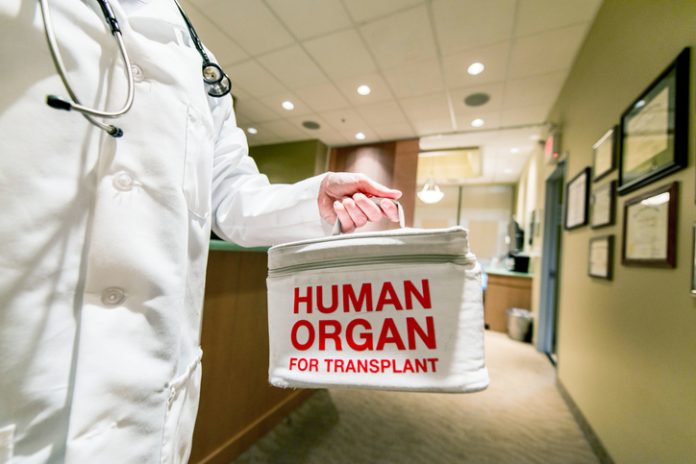Harvesting organs and the ethical questions it raises.
Review of The Brain Death Fallacy, Heidi Klessig, M.D. (Good Samaritan Books), 2023, 178 pages, ISBN 9798863485003 (Paperback)
A news report described how crash victim Daniel Gonzalaz received a “hero’s walk” while “his body was transported from the hospital where he was declared dead,” in December.
Daniel’s “body” was about to be airlifted to a surgical suite in nearby Madison, Wisconsin, where his vital organs would be removed for transplantation. A key fact, however, is that Daniel was alive, as most people would define it—with a beating heart, circulation, and respiration. The only way hospitals can remove vital organs while they are viable is to keep the donor alive. Daniel was likely deemed “brain dead,” and his condition “irreversible,” for the hospital to declare him legally dead.
How do doctors determine whether someone’s brain damage is “irreversible”? How can a patient trust such a decision when organ transplantation has become a multi-million-dollar enterprise?
Heidi Klessig’s book The Brain Death Fallacy provides some insight.
Organ Harvesting ‘Vultures’
Klessig, a retired anesthesiologist, became intrigued by organ transplantation in medical school when she noticed her medical professors fell into two camps: those who embraced a more liberalized definition of “brain death” and those who did not.
“No longer was the physician-patient relationship paramount for many medical doctors,” writes Klessig. “Now there were organ donations to be considered.” Klessig describes her encounter with a transplant team barreling down the hall and a nurse muttering to herself, “vultures.”
When a patient becomes unresponsive after brain trauma, families can be told there is no hope, and that organ donation could turn a tragic situation into a better one. Patients may unwittingly consent to this when they check the organ donation box on their driver’s license. If permission is unclear and no family members are present, hospitals now have wide latitude to make the donation decision on a patient’s behalf.
Death Redefined
How and when hospitals began to weld so much power goes back to 1968, when an Ad Hoc Committee at Harvard Medical School moved the point of death to “irreversible” unconsciousness. Not coincidentally, in 1967, Christiaan Barnard, M.D., made global headlines after performing the world’s first heart transplant.
The Harvard committee’s acceptance of “brain death” eventually became the basis for model legislation, the Uniform Determination of Death Act (UDDA), used in all states today.
Transplants ‘Depend on It’
Klessig quotes Alan Shewmon, M.D., emeritus professor of pediatrics and neurology at the University of California, Los Angeles, the author of a 2009 report published by the Hastings Center, a bioethics research institute.
“Brain death as death began as a utilitarian legislative decree and has remained a conclusion in search of a justification ever since: a conclusion clung to at all costs for the sake of the transplantation enterprise that quickly came to depend on it,” wrote Shewmon.
Cell growth defines life while decay is death, says Klessig, a process that begins rapidly the moment the body’s “systemic integration” ends. Patients with “brain death” are not in a state of decay, nor are their brains, as autopsies have shown. Even if they are on a ventilator, the patients’ hearts are beating, the lungs are functioning, and there are other signs of life. An irreversible coma is determined when an electroencephalogram (EEG) cannot detect electrical activity in the brain.
Recovery from Brain Death?
The book describes several cases where “brain dead” patients showed signs of brain function or outright recovered.
There is Joseph, a premature infant who showed no brain electrical activity after two tests, but thanks to the persistence of his parents and neonatologist Paul Byrne, M.D., survived, grew up, got married, and had a family.
Jahi McMath was a 13-year-old California girl who never woke up from a botched tonsillectomy. There was so much resistance to continuing her care that the family raised money and flew her to New Jersey, where she would have more legal protection. Jahi survived five years, and while she was in a minimally conscious state, began to menstruate, which requires the hypothalamus, a part of the brain, to function.
In 2015, 20-year-old Aden Hailu had a heart attack during abdominal surgery and did not wake up. Because of the “brain death” determination, Hailu’s father had difficulty convincing the hospital to try other treatments. Aden died in 2016 from cardiac arrest, not brain death.
Third-Party Interests
Organ harvesting is not the only reason to broaden the definition of death. Third-party payers may not want the bills for long-term care and treatment. California refused to cover Jahi’s medical expenses after her brain death determination.
A more liberal definition of death can give hospitals legal cover in the event of wrongful death lawsuits. Non-responsive patients may be viewed as taking up beds and using up limited medical resources.
Klessig’s book can help inform families and patients before the emotional crush of a crisis. Legislators might appreciate the legal chronology of the brain death determination and how it has evolved with advances in treatment and new knowledge about how the brain functions.
Avoiding Moral Quandaries
As the public learns more about the ethical dilemmas surrounding organ transplantation, they could demand the development of better technologies and medicines to treat failed organs.
Last summer, the Uniform Law Commission considered revising the UDDA to give doctors and hospitals even more latitude in declaring death. The revision was tabled.
AnneMarie Schieber (amschieber@heartland.org) is the managing editor of Health Care News.
Podcast




















